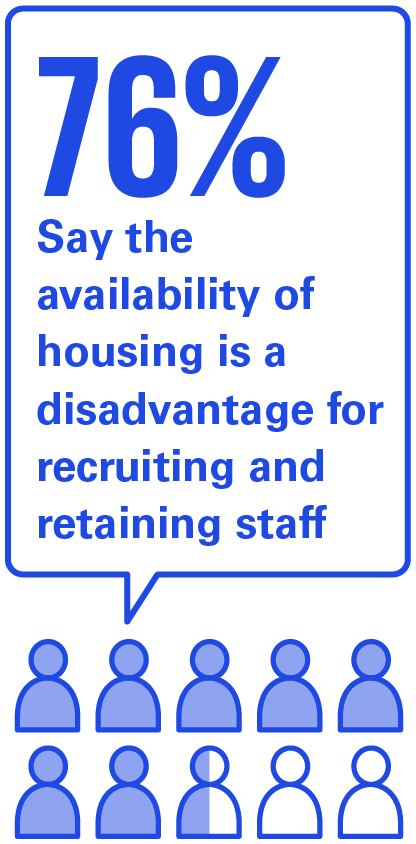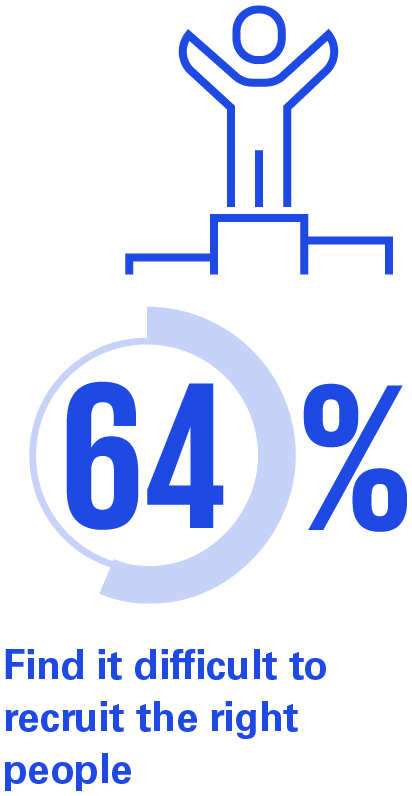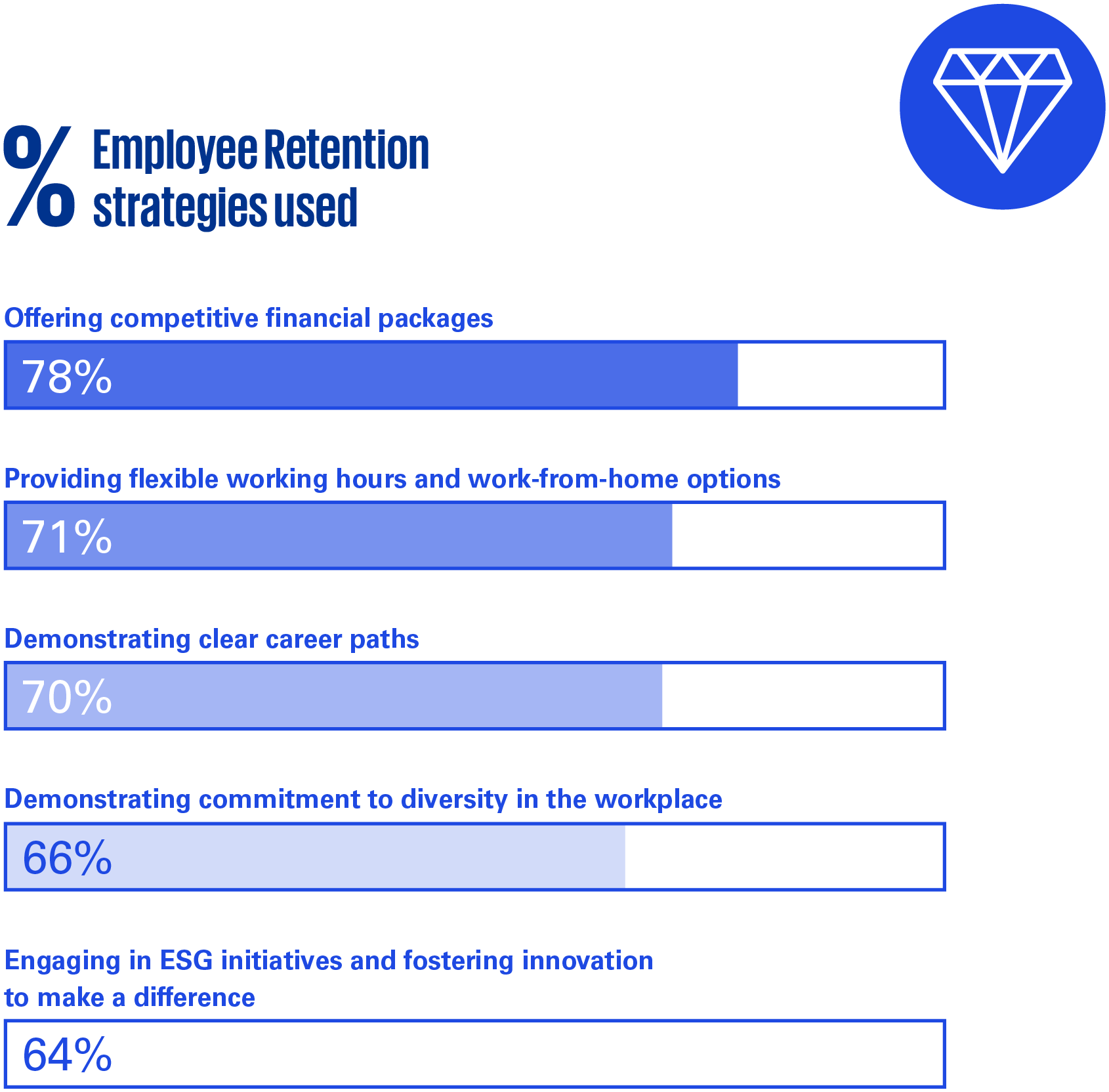Ireland’s housing supply faces a myriad of challenges, including soaring property prices, insufficient affordable housing, and a shortage of available land for development. Macro issues like economic fluctuations and government policy also impact supply. However, according to Hazel Cryan, Corporate Finance Partner KPMG, “Tackling these issues requires a multifaceted strategy which includes access to equity and debt funding for development, improved planning regulations and economic and political stability.”
Similar to last year’s research, over three-quarters (76 percent) said the availability of residential accommodation in Ireland remains a hurdle in recruiting and retaining staff.
In addition, tax measures could be introduced to increase supply, help with affordability issues, and support the rental sector. Possible tax measures include extending mortgage interest relief beyond 2023, introducing tax relief for residential accommodation constructed or purchased by employers and rented to employees, and reforming the taxation of rental income.
Recruitment remains a significant hurdle for businesses, with nearly two-thirds of companies (64 percent) facing problems finding suitable candidates, compared to 60 percent last year. The tax regime in Ireland is also proving to be a concern, with 41 percent perceiving it as a disadvantage for recruiting and retaining employees. But on a more positive note, the majority (88 percent) are confident their management team has the right skill set.








